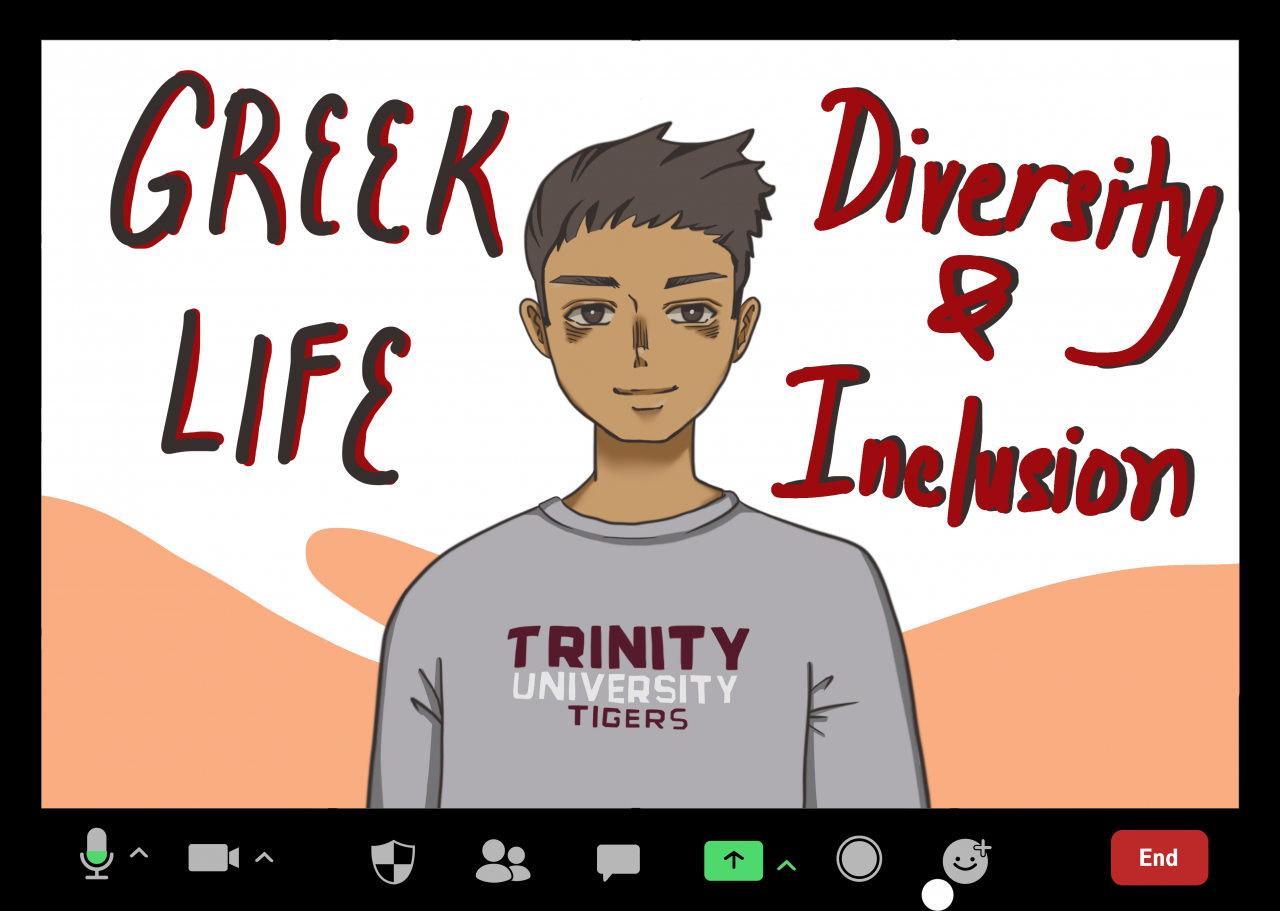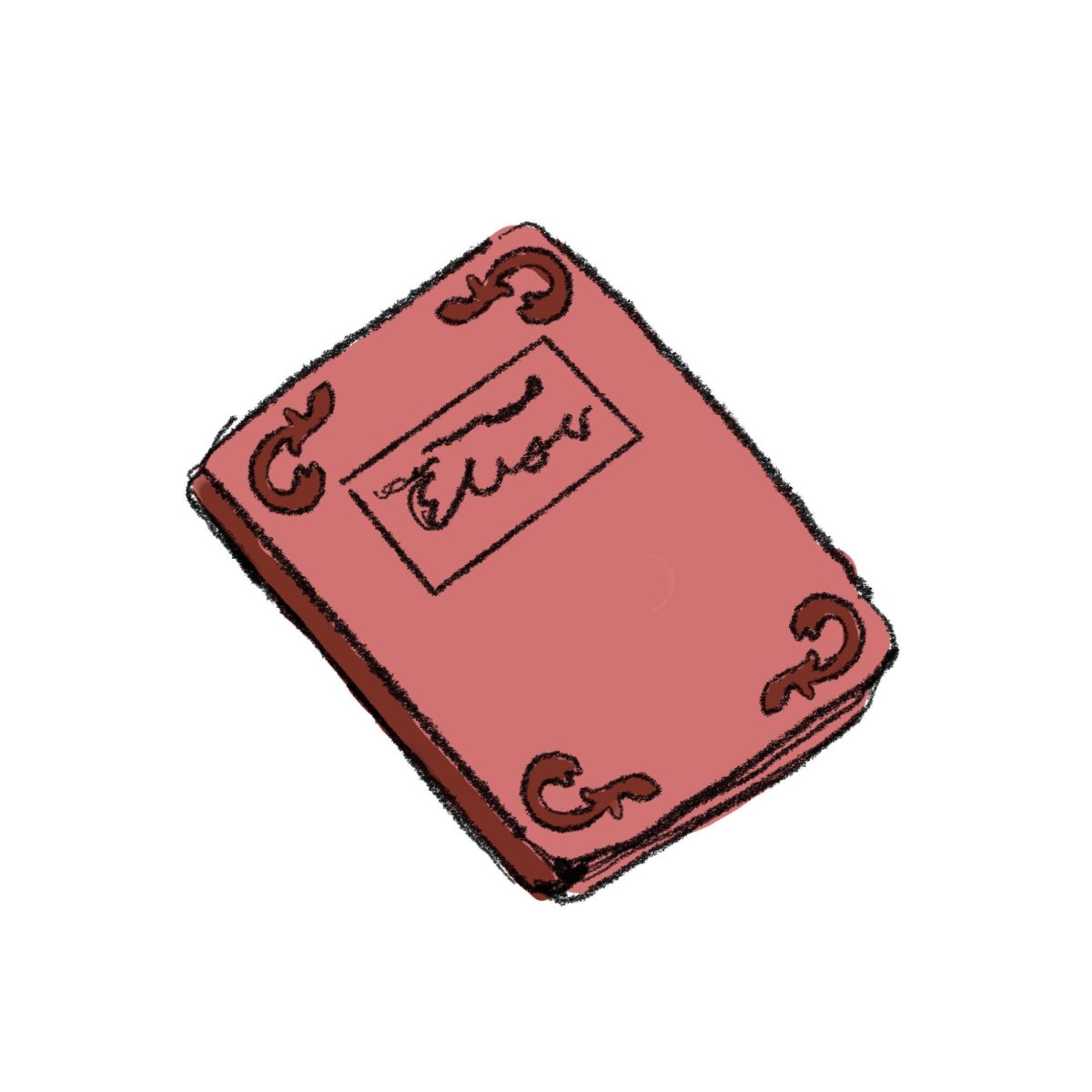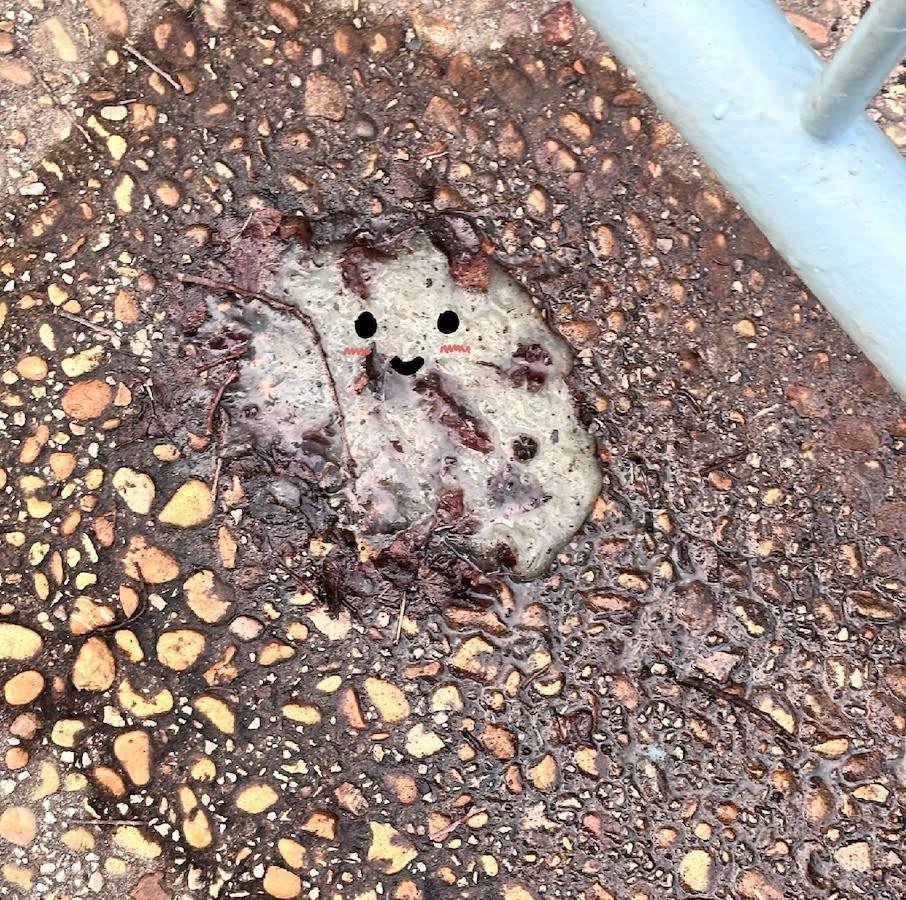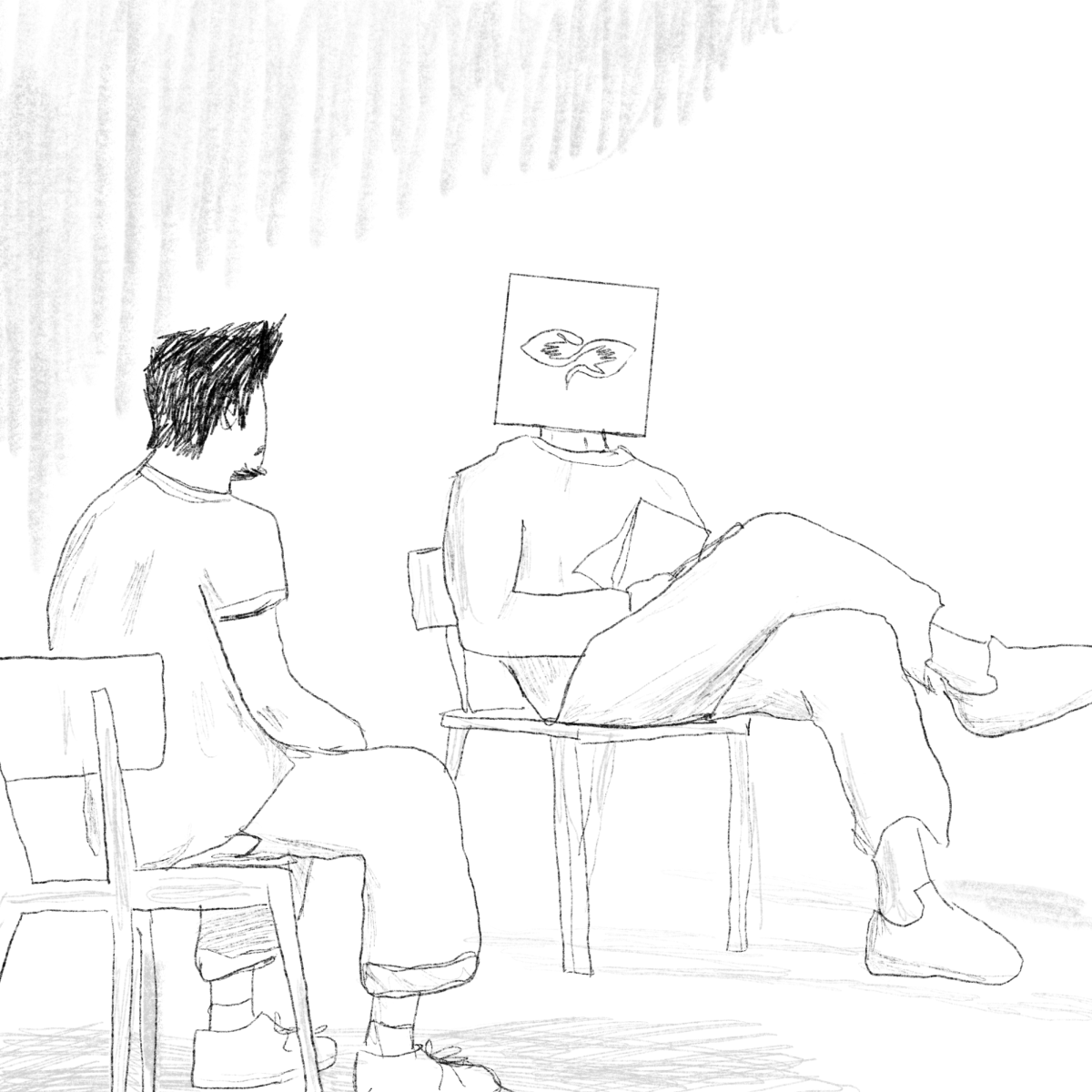illustration by Diep Hoang
As demonstrations spurred across the country in protest of the murder of George Floyd, clubs and organizations began to look internally and examine the racism that exists within their institutions. Nationally, Greek life was being called into question. Although racism on college campuses stems from multiple places, Greek life has been one of the main perpetrators since its conception. These clubs were formed in order to make spaces for white men and women. Trinity Fraternity and Sorority Life (FSL) faces unique issues because they are not nationally affiliated so they must reckon with their own local history of racism.
All FSL clubs must partake in an 11-week diversity, equity, and inclusion curriculum. The curriculum has students read about topics such as the history of white supremacy in Greek life and how to handle racism in the clubs. Clubs are also taking actions within their organizations in order to confront racism.
Wills Brown, Assistant Director for Fraternity & Sorority Life, accepts that FSL has a freighted past, but believes that Trinity’s community is able to persist due to its local status.
“Local status affords TU’s organizations the ability to swiftly pivot- giving us the tools to adapt and change policy without the red tape and bureaucracy associated with national organizations,” wrote Brown in an email statement.
Brown understands that the present moment insists that changes must take place in the FSL community.
“This is a pivotal turning point for the FSL community here at TU. Members must genuinely reflect on individual, organizational, and community-wide complicity related to any and all forms of discrimination, and expeditiously act to move in a direction that’s truly inclusive and sincerely anti-racist,” said Brown.
Sarah Pita, a sophomore member of Alpha Chi Lambda, who serves at their Diversity, Equity, and Inclusion Chair explains “[Alpha Chi] launched a DEI committee that is now in our constitution to make sure that DEI work is an ongoing, continuous, and never-ending effort for our club. The goal of this committee is to respond to any issues in terms of DEI as well as creatively create and work towards goals that it makes for itself.”
This committee will help continue conversations around DEI after the 11-week curriculum ends. The club will also take jerseys out of circulation that are offensive or has problematic stories behind the name.
Addressing racism in a club goes beyond doing readings or retiring a jersey it also includes comprehensive action. In order to heal harm done, accountability must be taken.
The numerous FSL related posts on the Trinity Way account make it clear there is plenty of accountability to be taken by these clubs.
Parker Lacy, a senior member of Omega Phi, who serves as their DEI chair.
“We’ve discussed a lot that going forward we really want to be as transparent as possible with the members of our fraternity,” said Lacy.
Omega Phi has a long history of hazing that led members in 2011 to turn over their charter and completely change the club.
Lacy said, “it can be something that we can look at and say, you know, never again. And, we should not run from that.”
Alpha Chi also wants to acknowledge its past.
Pita said, “especially during rush, we want PNMs to be truthfully informed about our club, even if that includes some of the things we aren’t proud of at all.”
Even with all this work, FSL must reckon with the question of whether or not a system built to be racist can be reformed?
Across the country, schools are abolishing Greek life or chapters are voluntarily dissolving because of the role they play in campus racism.
Pita said, “many of Trinity’s clubs are much younger than [national Greek organizations], more diverse, have more autonomy to enact changes, and have different histories.
However – we all still choose to label ourselves and associate with Greek life, an institution that has promoted hate and continues to do so in many ways today.”
Trinity FSL is enacting reform before it considers abolition.
Lacy said, “I would like to be very optimistic about the individuals, and our generation’s ability to change…but I think if as individuals we can’t just behave for kind of a facade but actually make an improvement in what these groups do behind closed doors as well. Then I think Trinity should absolutely consider [abolition].”
Alpha Chi has already discussed becoming a spirit organization, which are social clubs without the deep traditions and histories of Greek life.
FSL serves as a way for many people to find support and new friends when they are in a completely new environment, but alternatives may need to be explored in order to combat campus racism.




